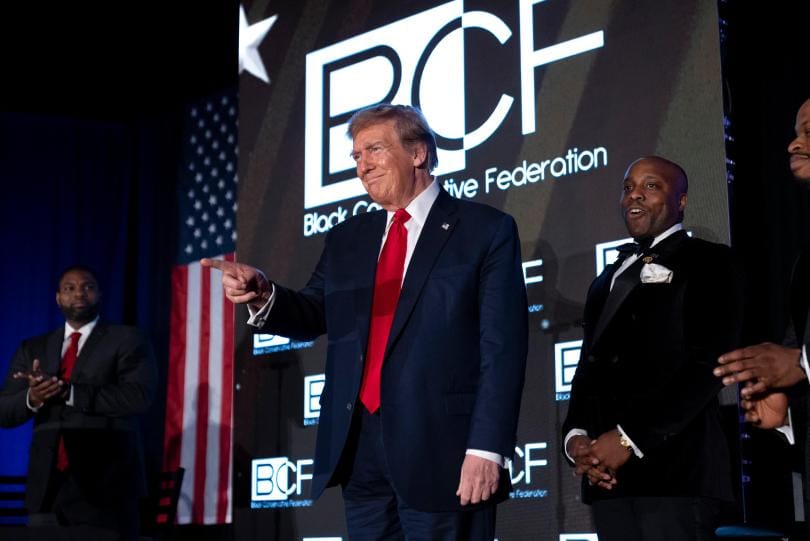Shifting Allegiances: The Complex Factors Influencing Black Americans' Presidential Preferences in 2024
As the United States gears up for the presidential election later this year, an unexpected trend is emerging: a notable shift among Black voters, historically a steadfast Democratic constituency, towards Republican candidate Donald Trump. This development comes amid growing concerns about President Joe Biden's ability to retain the
As the United States gears up for the presidential election later this year, an unexpected trend is emerging: a notable shift among Black voters, historically a steadfast Democratic constituency, towards Republican candidate Donald Trump. This development comes amid growing concerns about President Joe Biden's ability to retain the support of Black Americans, a demographic critical to his 2020 victory.
Recent polling data and analyses have illuminated a landscape of political disillusionment and strategic reevaluation within Black communities across the nation. According to a survey from GenForward, 17% of Black voters indicated a preference for Trump if the election were held today (USA Today). Furthermore, an AP News report highlights surprisingly low levels of support for Biden's reelection among Black voters, suggesting a potential vulnerability for the Democratic incumbent.
This shift can be attributed to multiple factors, including perceived unfulfilled promises and policy shortcomings during Biden's tenure. After four years in office, some Black Americans express frustration over what they see as insufficient progress on key issues such as criminal justice reform, economic inequality, and systemic racism—areas where Biden had pledged significant action.
Moreover, Trump's campaign has made concerted efforts to appeal to Black voters, focusing on economic empowerment, criminal justice reform, and educational choice. While controversial, Trump's messaging on overcoming legal injustices has resonated with some segments of the Black community, as highlighted by a GOP congressman's comments on NBC News. Also President Trump continues to discuss his plans for putting a halt to the illegal immigration surge that has secretly plagued the black community with an influx of illegals coming into black neighborhoods and using resources that was meant for black Americans.
The nuanced reality of Black political engagement, however, extends beyond a binary choice between two candidates. A poll highlighted by The Hill found that one in five Black voters would prefer "someone else" over either Biden or Trump, indicating a broader dissatisfaction with the available options and a potential openness to third-party or independent candidates.
Critics of the Democratic Party, including voices within the Black community, argue that reliance on racial identity politics without delivering tangible benefits has eroded trust and enthusiasm. An opinion piece in USA Today voiced a sentiment shared by many: a perception that the party takes Black votes for granted while failing to address their specific needs and concerns.
As the election approaches, both parties face the challenge of engaging Black voters in meaningful ways. For Democrats, this means not only defending Biden's record but also articulating a compelling vision for what a second term would achieve. For Republicans, the task involves building on the inroads made with Black voters in recent years, presenting a credible alternative that addresses their priorities.
In conversations with voters outside Detroit, The Washington Post captured a sense of uncertainty and contemplation. Black men, in particular, expressed frustration over the status quo and a desire for change that genuinely impacts their lives and communities.
The dynamics of the 2024 election underscore the importance of Black voters in shaping the political landscape. As both parties vie for their support, the ultimate decision will hinge on which candidate—or perhaps an unexpected third option—can best address the complex array of issues that matter most to Black Americans.
In the end, the evolving political preferences of Black voters reflect a broader narrative of American democracy: one where allegiance is not guaranteed, and leaders must earn the support of the communities they seek to represent. As the election draws nearer, all eyes will be on this critical demographic, whose choices may well determine the nation's future direction.




